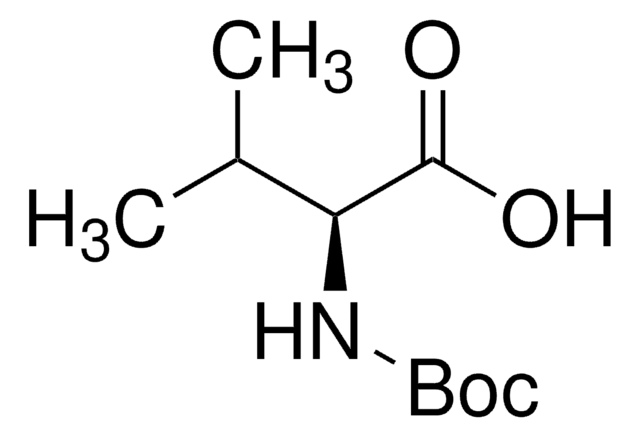680850
Di-(4-chlorobenzyl)azodicarboxylate
97%
Sinónimos:
Bis-(4-chlorobenzyl)azodicarboxylate, DCAD
About This Item
Productos recomendados
assay
97%
form
solid
mp
108-112 °C
SMILES string
O=C(/N=N\C(OCC1=CC=C(Cl)C=C1)=O)OCC2=CC=C(Cl)C=C2
InChI
1S/C16H12Cl2N2O4/c17-13-5-1-11(2-6-13)9-23-15(21)19-20-16(22)24-10-12-3-7-14(18)8-4-12/h1-8H,9-10H2/b20-19-
InChI key
UIFGGABIJBWRMG-VXPUYCOJSA-N
Categorías relacionadas
General description
Application
- Amino thioesters via guanidine-catalyzed biomimetic enantioselective decarboxylative Mannich and amination reactions of malonic acid half thioesters
- Hydroacylation reaction of aldehydes in Ionic liquid (IL) medium
- DCAD (di-p-chlorobenzyl azodicarboxylate) for Mitsunobu coupling reactions
Certificados de análisis (COA)
Busque Certificados de análisis (COA) introduciendo el número de lote del producto. Los números de lote se encuentran en la etiqueta del producto después de las palabras «Lot» o «Batch»
¿Ya tiene este producto?
Encuentre la documentación para los productos que ha comprado recientemente en la Biblioteca de documentos.
Los clientes también vieron
Contenido relacionado
Prof. Bruce Lipshutz and co-workers have developed designer surfactants to allow several classes of transformations (e.g. Suzuki-Miyaura, Olefin Metathesis, 1,4-Addition to Enones, etc.) to be performed in water.
Nuestro equipo de científicos tiene experiencia en todas las áreas de investigación: Ciencias de la vida, Ciencia de los materiales, Síntesis química, Cromatografía, Analítica y muchas otras.
Póngase en contacto con el Servicio técnico










